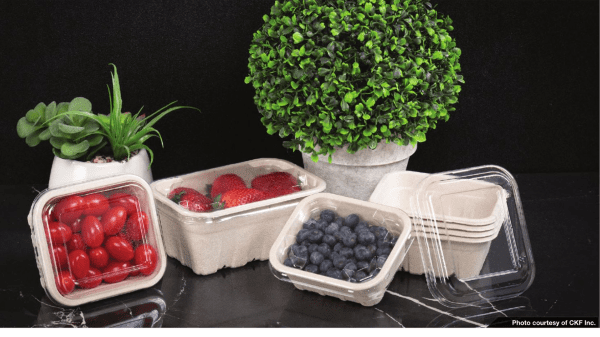The trend toward increased packaging continued during the pandemic.
Nick Maglio, director of marketing for ProEx Food, LLC of Milwaukee, WI, foresees “more overwrapping of fresh and fresh-cut items” as a result of the recent disruptions.
“I think we’ll see more packaging in produce,” says Brianna Shales, marketing director for Stemilt Growers, LLC BB #:113654 in Wenatchee, WA.
“This was probably already a path pre-Covid, but the increase in people buying groceries online has extended it, as well as people wanting convenience when shopping in person. Packaging also gives companies like Stemilt a method to share our brand and story with consumers, which is very important as people shop in multiple channels in the future.”
Online shopping reduces the need for visibility—a main advantage of the clear plastic clamshell. A customer is not going to be concerned about visibility when the product will be arriving at the home sight unseen.
Then there’s the question of what exactly constitutes packaging.
Chelsea Consalo, vice president of produce operations for Consalo Family Farms and The Fresh Wave, LLC BB #:170798 in New Jersey, points out, “Per the Canadian Food Inspection Agency (CFIA), cooking greens and herbs packaged by rubber bands and flag-style tags are now technically considered to be ‘packaged.’
“We are very fortunate to do business with retailers in both the United States and Canada. This allows us an international reach for our products, so we typically ensure we are following both U.S. Food and Drug Administration and CFIA guidelines for all produce packaging and labeling.
“So, including our full line of vegetables packaged via those flag-style tags and rubber bands, 80 percent of our products are sold as ‘packaged.’ Many of our items are also banded using a waterproof produce tie, which is considered exempt from prepackaging guidelines due to its size.
“Over the last two years, our goal has been to ensure that all of our packaging is either recyclable or compostable,” Consalo continues.
“We’re in the process of launching compostable paper bags in all pack sizes for potatoes. We utilize biobased mesh for our mesh packs; our biobased mesh is derived from sugar cane and is 100-percent recyclable.”
This is an excerpt from the Applied Technology feature in the September/October 2021 issue of Produce Blueprints Magazine. Click here to read the whole issue.



